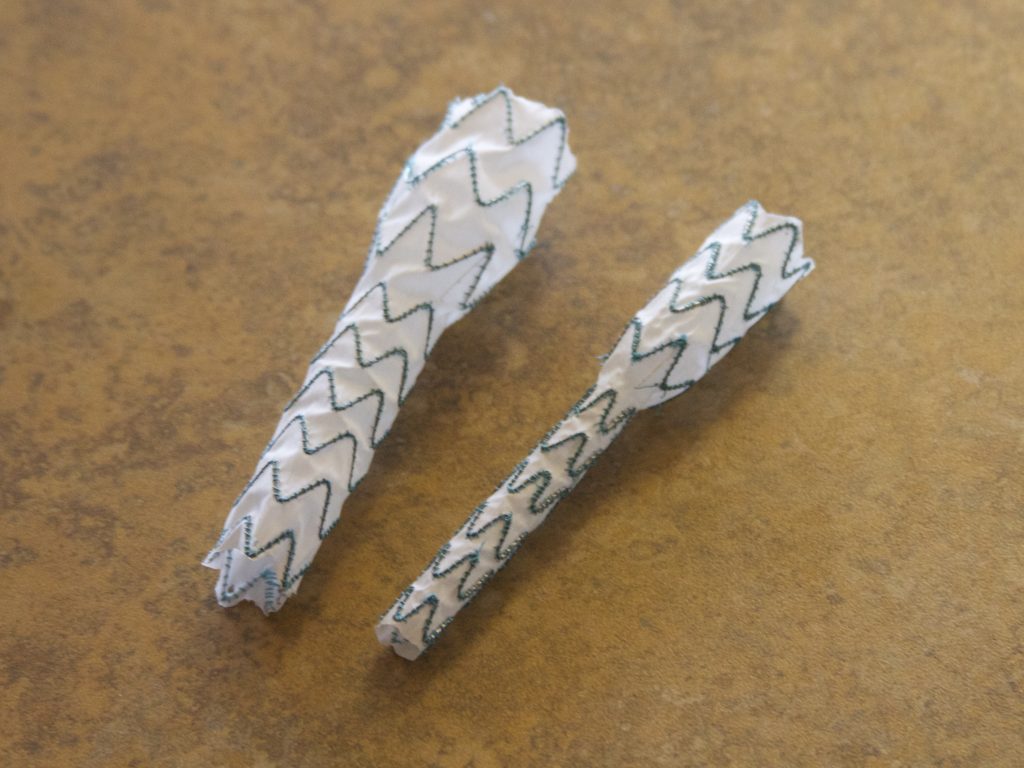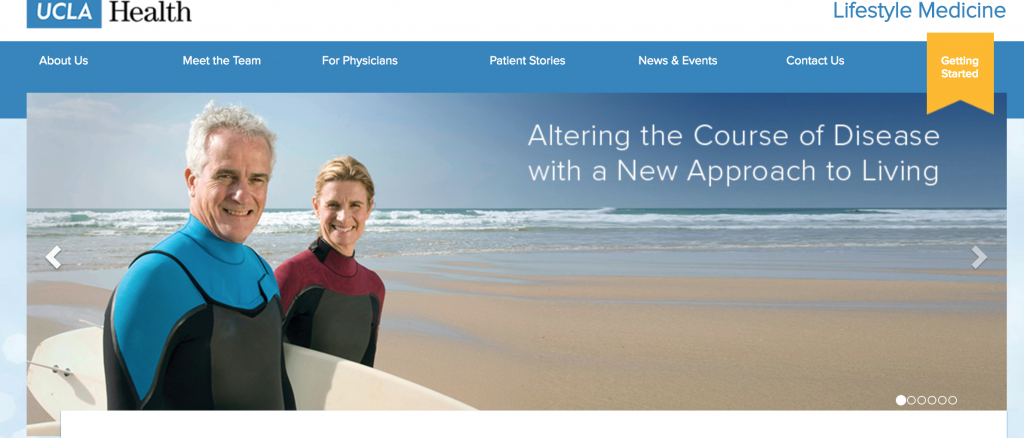
If I Have a Stent Will Ornish Lifestyle Medicine Keep it From Getting Clogged?
Photo Credit: Lenore Edman, via Flickr Creative Commons
Let’s start by explaining why people get stents. Stents are generally used to control angina. They provide temporary relief for the chest pain in patients with angina and a large arterial plaque. They are also sometimes used on more urgent blockages (called L main disease or L main equivalent, where the risk of a dangerous heart rhythm problem warrants a stent or bypass surgery) and for emergent conditions, like during or shortly after a heart attack. Stents are usually placed after an angioplasty, where a balloon is inflated to squish the plaque out of the way. Stents were developed to help make angioplasty more effective and less likely to re-clog. Angioplasty with a stent placed has less clogging than angioplasty alone (30% vs 15%) and medicated stents drop that rate to about 10%.
If you already have a stent, the Ornish Lifestyle Medicine program will help decrease the risk of the stent clogging
The High Cost of Stents
Stents have no effect on heart attack rates or death rates. In fact, studies on stents show that up to half of the stents placed might not be needed and that medicines and lifestyle changes were more appropriate. When the total cost for a single stent in the United States is around $35,000, and more than 600,000 stents were placed last year at a cost of more than $10 billion dollars, it raises some interesting questions. Especially when other proven therapies for angina exists at a fraction of the cost.
Ornish Lifestyle Medicine: A Better Approach
The Ornish Lifestyle Medicine program (Intensive Cardiac Rehabilitation) improves or eliminates angina in 90% of people in the first 30 days of the program. It also has the positive side effects of increased life satisfaction and decreased depression. Further, participants have 2.5 times less cardiac events in the following 5 years.
For some patients, stenting has no role, even for symptom control. This includes people whose plaques are spread out (often found in people with diabetes and in women with heart disease) or those who have small vessel disease (microvascular heart disease), which I discussed in an earlier post. Our treatment strategy is to turn off the reasons a person is getting increasingly sick and replace them with healthy habits and daily practices that help get them better.
The Case for Stents
There are two cases where we would recommend stents or bypass surgery prior to participating in the Ornish Lifestyle Medicine program. First is for people who have a large plaque in their L Main coronary artery, or what is called a L main equivalent, because they have a risk of a dangerous heart rhythm problem. Second are for people who are having a heart attack where a stent can be life saving.
Why Do Stents Clog?
Certain conditions increase the risk of developing a clogged stent: having diabetes, hypertension, obesity, multivessel disease, being a woman and the use of multiple stents. Stents clog for four main reasons: clot, scarring, inflammation and damage to the blood vessel lining. Clotting and scarring are treated with blood thinners and medicated stents, but what about the inflammation and damaged lining of the blood vessel?
If I Have a Stent, Will Ornish Lifestyle Medicine Help?
Yes, the Ornish Lifestyle Medicine program, and even exercise alone, decreases the risk of stent clogging and improves the outcome following stent placement. Lifestyle changes, including exercise programs have been shown to decrease restenosis and decrease future events by almost 50%.
The Ornish Lifestyle Medicine program incorporates the exercise component used in the previous studies and the added benefit of a nutritional component that helps decrease inflammation, decrease blood sugar, decrease obesity and reverse other plaques. It also includes both a stress management component and a group support component, both which help to decrease levels of circulating catecholamines (stress hormones) that help to alleviate inflammation and blood vessel spasm. Ornish Lifestyle Medicine treats both inflammation and helps the blood vessel lining to heal.
For non-urgent and non-emergent patients who qualify for a stent, the Ornish Lifestyle Medicine program gives better outcomes at less cost and people like it because they feel so much better. If you already have a stent, the Ornish Lifestyle Medicine program will help decrease the risk of the stent clogging.









